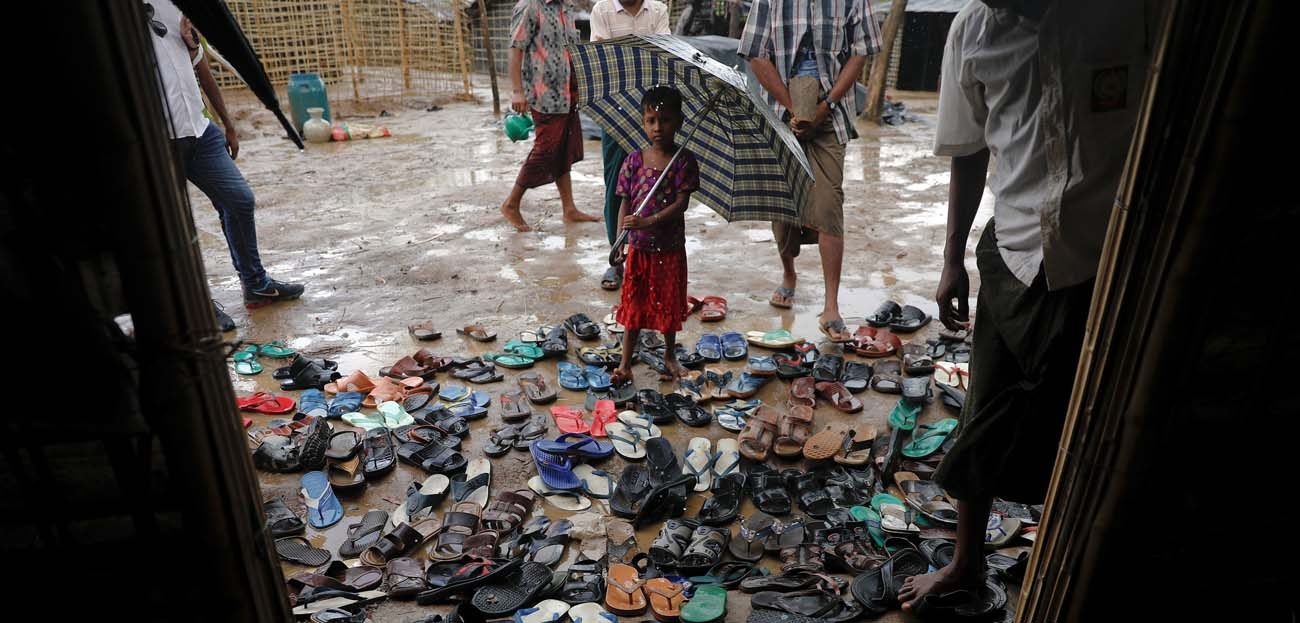WASHINGTON (CNS) — The chairman of the U.S. bishops’ Committee on Migration called on the federal government to work with the Myanmar government and the international community to solve the crisis affecting the persecuted Rohingya people.
Bishop Joe S. Vasquez of Austin, Texas, said in written testimony to the House Committee on Foreign Affairs Oct. 5 that the situation affecting the largely Muslim Rohingya population in Myanmar deserve “safe, humane and voluntary durable solutions” as they struggle amid violence that has caused them to flee their homeland.
More than 500,000 Rohingya have fled Myanmar’s Rakhine state to Bangladesh since Aug. 25 after government forces began retaliating after attacks on security check posts by militants from the Arakan Rohingya Salvation Army. The conflict has resulted in more than 1,000 Rohingya deaths, dozens of houses burned and countless women being raped.
[hotblock]
Bishop Vasquez offered several recommendations to the House committee, including steps to stabilize the situation in Rakhine state and Bangladesh, provide protection and humanitarian assistance for the displace Rohingya, resettlement of Rohingya in other countries as necessary, and work for long-term peace while addressing the root causes for the displacement of people from Myanmar, also known as Burma.
The majority of Rohingya are Muslim and a minority are Hindu. They have lived in the area formerly known as Arakan, now Rakhine state, long before the Burmese occupation from 1784 to 1826 and British rule from 1826 to 1948.
Yet, Myanmar does not recognize the Rohingya as one of the country’s 135 ethnic groups, considering them instead as Bengali, infiltrators from Bangladesh. In 1982, a controversial law stripped citizenship from the Rohingya, officially making them stateless.
Decades of persecution by the military and extremist Buddhists forced tens of thousands to flee to various countries, mostly to Bangladesh. The most recent violence caused thousands more to seek safety.
[tower]
Bishop Vasquez said the U.S. Conference of Catholic Bishops and its Migration and Refugee Services has resettled some Rohingya people in the U.S., but that the need was greater than the ability of any one country can meet.
He called on the U.S. to raise the number of refugees being admitted to the country during fiscal year 2018 from 45,000, as determined by President Donald Trump at the end of September, to 75,000. The bishop said the 45,000 figure represents the fewest number of refugees to be admitted since the passage of the 1980 Refugee Act, which formalized the country’s refugee program.
Bishop Vasquez also expressed frustration with Aung San Suu Kyi, Myanmar’s leader, for not being “publicly very vocal about the plight of these Muslims from Rakhine state.” While Suu Kyi has been an outspoken defender of civil rights and pushed for democratic reforms under the military government of Myanmar, the plight of the Rohingya has not been adequately addressed, he said.
He urged further efforts be undertaken whereby the country’s “ethnic groups have an ongoing process for seeking to build a federal, democratic system in which all of Burma’s people have access to shared governance and shared resources.”
“As we shed light on the human rights tragedies in Burma, we urge continued U.S. support to resolve these critical situations and to support the democratically elected government in addressing these situations while also supporting their broader efforts to build a new, democratic, inclusive Burma,” the bishop said.
PREVIOUS: Pope names Florida priest auxiliary bishop for Orange, California
NEXT: Las Vegas: Trauma real even when not acknowledged, psychologists say



Share this story